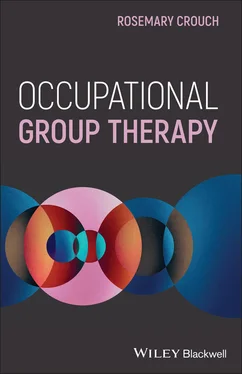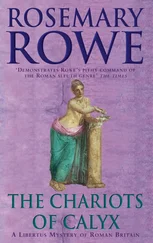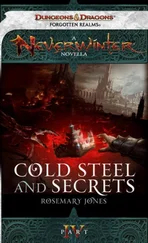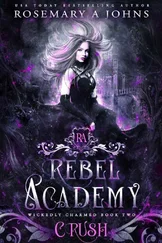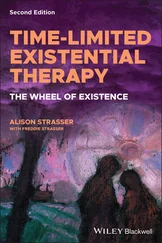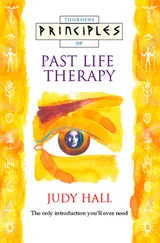Rosemary is the co‐editor of three books with Vivyan Alers as co‐author entitled ‘Occupational Therapy in Psychiatry and Mental Health’. The fourth and fifth editions were published by Wiley & Blackwell Publishers (UK). She was also co‐editor with Vivyan Alers of the book ‘Occupational Therapy: An African Perspective’, published in Johannesburg by Shorten Publishers in 2010.
She edited a book entitled ‘OTASA; A remarkable story’ published by Sarah Shorten, in 2016. Rosemary has many publications in journals.
She held various positions in the Occupational Therapy Association of South Africa (OTASA) and was appointed OTASA Representative on the World Federation of Occupational Therapists (WFOT) for a total of 19 years. She was Chairman of the Education Committee of WFOT and then became Vice President for four years in 1998. In 2010 she was highly honoured to be awarded an Honorary Life Fellowship to WFOT.
She was chairperson of the Professional Board for Occupational therapy, Medical Orthotists and Prosthetists and Arts Therapists for eight years from 2004 to 2010. In 2019 she was honoured to be awarded a ‘Health Merit Award’ as a Top Professional by the Health Professions Council of South Africa (HPCSA).
She is an Honorary Life member of the Occupational Therapy Association of South Africa (OTASA).
Louise Fouché (Author of Chapter 4)
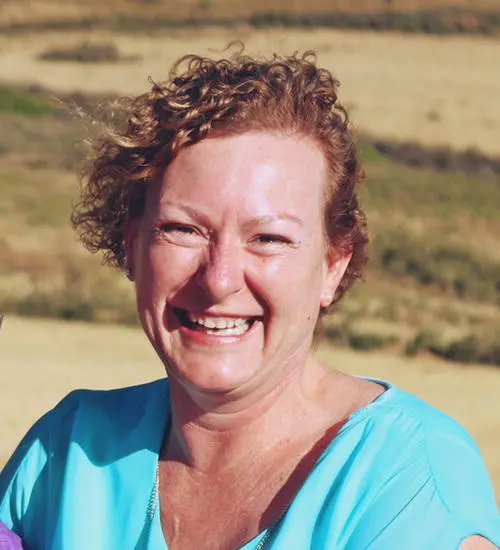
Louise qualified as an occupational therapist in 1992 at the University of Pretoria. She obtained a Post‐graduate Diploma in Interpersonal Relationships and Group Activities with cum laude at the same university in 1999. In 2001 she received a Master's in Occupational Therapy in the Mental Health field (2001) at the University of Pretoria and a Post‐graduate Certificate in Higher Education in 2004.
As a member of the Occupational Therapy Association of South Africa (OTASA), Louise was asked to lead the development of the scope of Group‐work for the Occupational Therapy profession. This statement has been has been Gazetted.
Louise Fouché is the founder of ‘OTGrow’ a company that trains occupational therapists, both nationally and internationally, in specific group techniques which can be implemented with mental health care users. OTGrow was started 10 years ago and Louise has trained over 700 therapists to date. She was also instrumental in the development of St Raphael's Sanctuary's Healing Program that focuses on psycho‐spiritual healing, which is unique as it merges psychological principals for healing with spiritual development, within a group context.
Louise has been instrumental in developing the Occupational Therapy Interactive Group Model (OTIGM) to a high level and many occupational group therapists have emerged as experts in this Model. It has been an important factor in the growth of occupational group therapy in South Africa and contributes greatly to the profession.
Footfalls echo in the memory,
down the passage we did not take,
towards the door we never opened,
into the rose‐garden.
T.S.Elloit (Four Quartets)
©1943, Houghton Mifflin Harcourt.
How passionate is one allowed to be about occupational group therapy? It is rather like being passionate about a group of roses. Your admiration of their collective beauty and fragrance encourages you to learn about roses and how to care for them. Your desire to grow them makes you carefully select the ones that will flourish in your garden and you position them with knowledge of their needs. Finally, you set about planting and looking after them. The nurtured product of your endeavours can be likened to the outcome from intervention by occupational group therapy which can be undertaken with groups of people from the young to the old, in different fields of health care.
There has been a remarkable growth and progression globally of occupational therapy into a scientific and meaningful profession with new models, techniques, equipment, research and evidence‐based practice. However one is left with a sense that group‐work in occupational therapy lags behind. There is some evidence‐based research available worldwide on the subject, which will be addressed, but certainly not enough! This book attempts to address this subject by providing a practical guide and teaching manual for both undergraduate and postgraduate occupational therapy students. In this way they may increase their use of group work as a therapeutic intervention and draw inferences from their work which can be researched and published.
It is intended that this book has been written specifically for occupational group therapy intervention and some of the theory may be helpful to other professionals trained in groups.
The uniqueness of occupational group therapy relies on the fact that it is built on the theories of Yalom (1975), Moreno (1987) and Homans (1968) yet is well entrenched in occupational therapy philosophy and models from Canada, the United States, South Africa, the United Kingdom, Australia, etc. From this theoretical background the expertise to use activities of many kinds, which are the backbone of the occupational therapy profession, are woven into the dynamics of the group in a very effective manner.
The undergraduate occupational therapy curriculum covers client handling extensively as well as structuring and communicative skills, together with the therapeutic use of self. These are the ingredients for an effective group leader who excels in the functional and performance aspects that people need to develop.
Often we hear the words ‘I don't feel confident and lack the experience to be a group leader’. Hopefully this is where this book comes in. Self‐confidence is a quality that needs nurturing and practice within the occupational group therapy field. Make sure the essential learning is in place, attend experiential workshops for self‐growth and use the guidelines and suggestions in this book to guide you.
The most effective group leaders are those who attend to the needs and feelings of group members in the present time and structure of the group, so that the stated goals are achieved (Health promotion Unit, NSW, Australia 1968). Choose your place and your clients, feed them and nurture them to the best of your ability and watch them grow.
You can walk down the passage of occupational group therapy, open the door, and admire your strongly growing, fragrant roses!
This book is being published in the midst of one of the most difficult times in the history of the world – the Covid 19 pandemic! However this does not change the fact that people still suffer from psychiatric, mental and psychological problems. In fact it exacerbates the problem. Occupation becomes paramount, especially during the lock‐down and the World Federation of Occupational Therapists (WFOT), and many countries and many countries have addressed this concept bringing occupational therapy to the forefront as an essential profession. As far as group work is concerned, it is clearly difficult to undertake group therapy whilst group members have to keep at a distance from one another and wear masks, but it is possible. Intervention is clearly compromised.
I wish to thank all occupational therapists who have persevered during this time and also my husband Michael who is a great support and experienced editor.
Sharon Brintnell
Rosemary Crouch and I met when we worked on many World Federation of Occupational Therapy (WFOT) initiatives such as the Education Committee. We met frequently at WFOT conferences and council meetings all over the world. In Ottawa in 1998 she became a Vice President of WFOT and I was Vice President (finance). Through our shared interests in education, mental health and psychiatry, as well as the global development of the occupational therapy profession, we became very close friends and always travelled in the countries where our meetings took place for a week or two together afterwards. Many happy times were had also with our respective husbands in South Africa, touring the wonderful game parks.
Читать дальше
